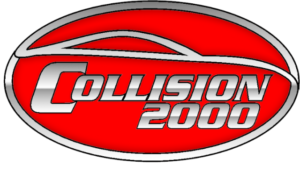Blog
Car History
You’re in the marker for a new car…you are smart, you check the vehicle history on Carfax. You see the
vehicle is free of any accidents, but how certain are you? Many cars are repaired by the customers
without going through their insurance companies, therefor the damages don’t show up on Carfax or any
other report. Before you buy, here are some signs to look for that the car has had some repairs.
Paint Issues
Under the lighting of the used car lot, that cars paintwork can appear amazingly flawless, but that may
not be the case. It often helps to be able to scrutinize the paintwork in a well-lit environment, such as
out in the sun, and this is where you will be able to inspect it thoroughly for any inconsistency. Whether
it’s just a slightly different shade, a variance of the shine, paint overspray or completely mismatching
colors between the various body panels, it all points to a car that had its bodywork repaired.
Replaced parts
It is not uncommon to replace only the damaged parts after an accident and luckily for you, this means
that there would be obvious signs for you to look out for. A brand-new part on a largely worn and aged
vehicle is like a huge warning sign, especially so if it’s the airbag cover (which will often break upon
deployment of the airbags) or the head and taillights, which are most likely to be damaged in a fender
bender. In some cases, mismatched or third-party parts are also used in a bid to lower repair costs.
Therefore, always verify with the seller regarding such irregularities.
Panel gaps
Again, you are looking for inconsistency. Check all 4 doors and see if it’s harder to close any one door
than the others. You also shouldn’t be able to stick your finger in the gap between the fender and door
when closed. These gaps should be minimal and consistent throughout the bodywork. After a serious
accident, many parts will be misaligned, and getting them back in place is not a simple task.
Car doesn’t drive straight
Test driving a new car is all about getting to experience its features, but test driving a used car is also
about determining potential issues. If the car pulls to a side and is not able to track straight, its
alignment may be off. In the worst case scenario, it may even be a car that has a bent chassis that is
impossible to be properly aligned. Never purchase such a vehicle without demanding for a realignment
to be done, if possible, and ascertain that the issue has been rectified.
Uneven tire wear
So, you went for a spin, the car drives straight, so it must be in perfect condition? Not necessarily. Even
if the car does not pull to one side, uneven tire wear could be the outcome of a botched suspension
alignment setting. It may also indicate something much more serious, such as a problematic chassis,
aligned to hide the issue. If the compromised chassis perpetually works against the direction of the
wheel, the tires would be experiencing an abnormal amount of forces, resulting in that uneven wear you
visually observed.
Welding marks
Heavier hits may require repairs that cut and swap the damaged section and this involves a lot of
welding, which could be noticed upon a closer look under the carpeting of the boot.
Most cars have parts that were welded together, so what you should look out for are cutaway sections
that were stitched together (the boot floor should be a single piece, definitely not joint across the spare
tire well), irregular welding marks (compared to other welds on the car) and those on curious locations.
Generally, such cars are avoided as there is no sure-fire way to find out if it has been professionally
repaired, rendering it near impossible to know how well it would hold up in the event of another
accident.
Unpainted surfaces or rust
Structural parts of a car aren’t usually held together by nuts and bolts. Repair works usually requires
some welding. When welding paint needs to be removed in order for it to be done properly. These parts
are usually made of steel, which will rust over time if left unpainted. Repair works on inconspicuous
areas, such as in the engine bay, are the prime suspects as it is easy for the untrained eye to overlook.
Fresh undercoat
More common in northern states, which experience winter, cars are undercoated to prevent rust and
slowdown the rate of wear and tear. Many local cars are also undercoated either as an option by the
dealer or done by a third party. However, if you are viewing an unassuming used car with a fresh shiny
undercoat, it might be an attempt to hide repair work that was done to the car.
Visible creased panels
The malleable steel sheets, which make up most of a car, could crease upon the impact of a collision and
a proper repair job would see to it that the body of the car is straightened as much as possible.
However, a shoddy repair job might leave concealed areas such as the boot floor or sections in the
engine bay still visibly creased.
Mismatching or missing screws and fasteners
Pop open the bonnet and you would see screws that hold the fenders in place, and these should be of
the same type and of similar condition. Why should you be worried if these seemingly insignificant
hardware doesn’t match up? While working on cars, it is not uncommon for workshops to misplace and
replace such screws. Hence, this could be an indication that the fenders were removed at some point for
repair work to be done. This applies to other parts as well, such as the bolts holding the bonnet to the
hinges or fasteners, which keeps the fenders splash guards on.
Even if the car doesn’t exhibit any of the above signs, it would always be a wise decision to seek a
professionals opinion and get the car evaluated by a trustworthy collision shop. & quote an independent
evaluation gives the potential buyer a clearer picture of the car’s condition, allowing him to make a
more informed choice “explains Glenn Ong, General Manager of sgCarMart”. Does this mean that
cars involved in accidents should be avoided like the plague? Not exactly, if the damage was minimal, or
if the car does not exhibit any of the above mentioned tell tale signs and has been green-lit by a
professional. It must have been properly repaired, and as such you should be able to purchase the
vehicle without much worry.

